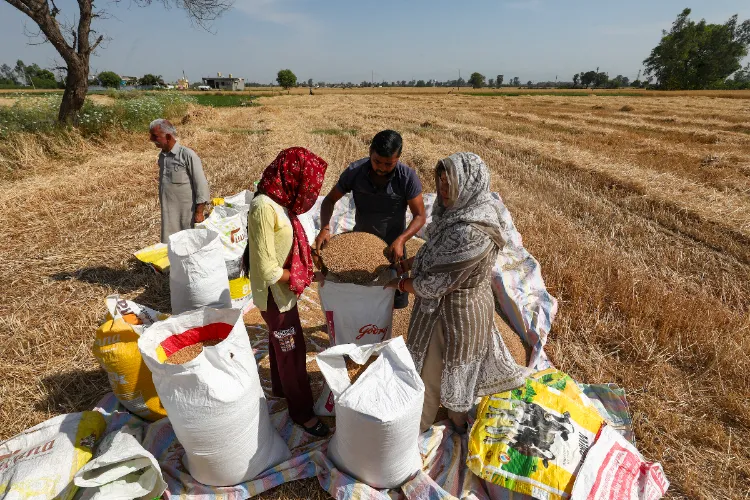
Jammu
Living in the shadow of rising tensions between India and Pakistan, villagers residing near the International Border and Line of Control (LoC) in Jammu region are filled with a sense of urgency as they clear underground bunkers, harvest crops along the fence and steel themselves for any potential escalation.
Thousands of underground safe shelters have been built by the government over the years for the protection of residents from firing by Pakistani troops.
Though the frequency of incidents of ceasefire violations has been low since 2021, when the two countries renewed the ceasefire agreement, the aftermath of the Pahalgam terror attacks has sparked safety concerns among the border residents, officials said.
“Nobody knows what will happen next. We have decided to prepare the underground bunkers so that we can save ourselves in case there is shelling or firing from across the border,” Balbir Kour, former sarpanch of Treva village in R S Pura sector near here, said.
India shares a 3,323-km-long border with Pakistan of which 221 km of the IB and 744 km of the Line of Control fall in Jammu and Kashmir.
On February 25, 2021, India and Pakistan announced the implementation of a renewed ceasefire along the borders of Jammu and Kashmir, which came as a major relief to the people living along the IB and the LoC.
India and Pakistan had initially signed a ceasefire agreement in 2003, but Pakistan frequently violated the agreement with over 5,000 violations reported in 2020 – the highest in a single year.
To safeguard the border residents from Pakistani shelling, the Centre in December 2017 sanctioned the construction of 14,460 individual and community bunkers in five districts of Jammu, Kathua and Samba, covering the villages located along the IB and Poonch and Rajouri villages on the LoC. Later, the government had sanctioned over 4,000 more bunkers for the vulnerable population.
Kour, who was supervising the bunker cleaning drive, said they are ready to face any situation and stand shoulder-to-shoulder with the forces.
“We want our government to act decisively against the terrorists and their handlers sitting across the border. We want the elimination of all those who carried out the cold-blooded murder of unarmed and innocent civilians,” she said.
Outside, the sound of harvesters is heard from the golden fields. Seva Ram, a villager, said while the women are busy cleaning the bunkers, the males have decided to advance the harvesting of the standing wheat crops by a few days.
“We are soldiers without weapons and are always ready to face the enemy,” he said.
Similar reports were also received from border villages near the International Border in Samba and Kathua districts and the twin border districts of Poonch and Rajouri, officials said.
“The situation is tense and we are as usual standing strong behind our soldiers to teach Pakistan a lesson,” Mohd Farooq, a resident of Salotri village near LoC in Poonch, said.
The borders along the Jammu region have remained peaceful but there have been ceasefire violations in Kashmir Valley for two nights since Thursday. However, there was no report of any casualty in the cross-border firing.
A terror attack on tourists in south Kashmir’s Pahalgam hill resort on April 22 left 26 persons, mostly tourists, dead sparking a nationwide outrage with Prime Minister Narendra Modi on Thursday warning that the killers would be pursued "to the ends of the earth" as he promised to "identify, track and punish every terrorist and their backers".
In view of the cross-border linkages to the attack, India on Wednesday announced a raft of punitive measures, including the suspension of the 65-year-old Indus Waters Treaty, the closing of the Attari land-border crossing and the expulsion of Pakistani military attaches. New Delhi also asked all Pakistanis who entered the country via the Attari land border to leave by May 1.
ALSO READ: Farkhanda Qureshi: Small town woman achieves big success by securing 67th rank in UPSC
In its response, Pakistan on Thursday announced it was shutting its airspace to all Indian airlines and suspending trade with New Delhi, including through third countries.
Pakistan also rejected India's suspension of the Indus Waters Treaty and said any measures to stop the flow of water belonging to Pakistan under the pact would be seen as an "act of war".
